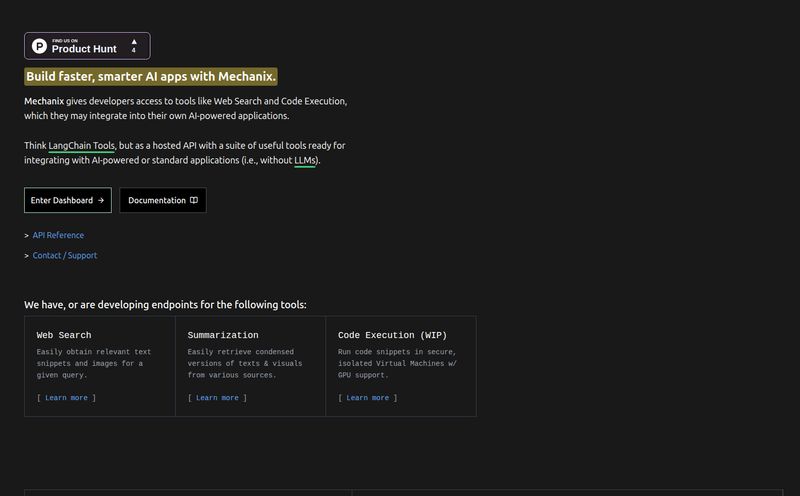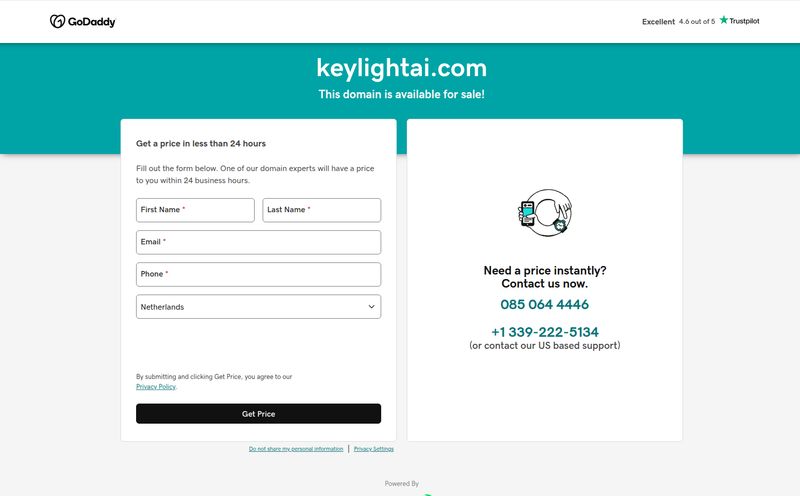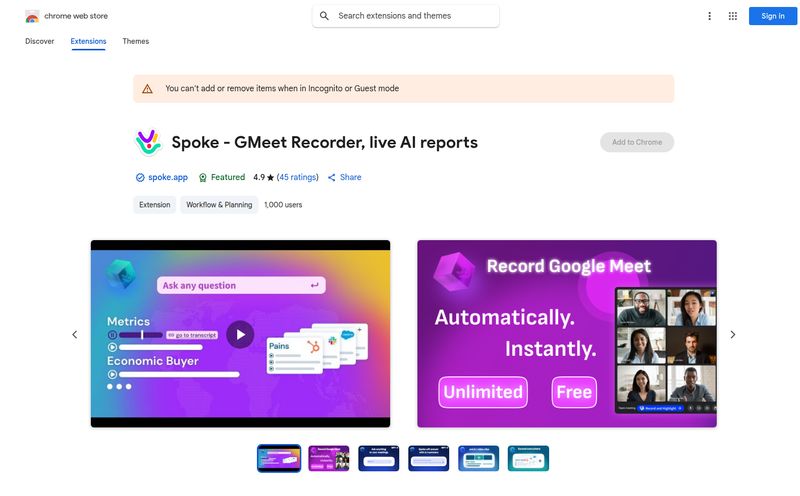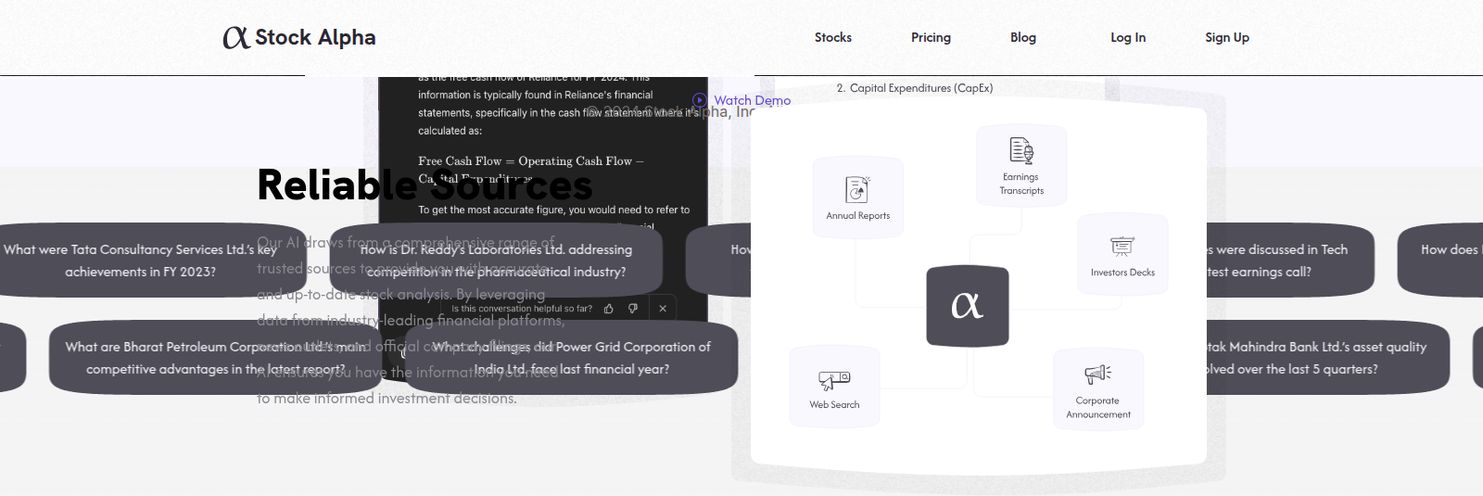I remember the bad old days. The ones buried under mountains of case law books that smelled faintly of dust and despair. The late nights spent wrestling with clunky, unforgiving databases, trying to find that one perfect case with just the right combination of keywords. You’d type in "wrongful termination" and get a thousand irrelevant results about… well, who knows what. It was a grind. A necessary one, but a grind nonetheless.
Fast forward to today, and the AI wave is crashing over every profession. We’ve seen it in marketing, in coding, and now it’s knocking on the courtroom door. And I’ve got to say, I'm here for it. One of the newer names creating a buzz, especially in the subcontinent, is a platform called The Precedent. It's making some pretty bold claims about changing the legal research game in India. So, naturally, I had to take a look.
What Exactly Is The Precedent? (And Why Should You Care?)
First off, let's be clear what this isn't. The Precedent isn't another chatbot that's going to give you canned, unreliable legal advice. The homepage itself says, "We’re not a chatbot or a new workflow to learn." And thank goodness for that. The last thing any busy professional needs is another complicated system to master.
Instead, The Precedent bills itself as an AI-powered legal research platform designed specifically for the modern Indian practitioner. Its tagline, "Legal research at the speed of thought," is ambitious. The core idea is to let lawyers and legal eagles ask questions in plain English and get back accurate, relevant case law, summaries, and even drafted memos. It’s built to “slot seamlessly into how lawyers already work,” which, from a usability perspective, is music to my ears.
The biggest hook? It's laser-focused on the Indian legal context. This isn't a generic global tool trying to be a jack-of-all-trades. It’s been built from the ground up for the nuances of Indian law, which, as anyone in the field knows, is a universe unto itself.
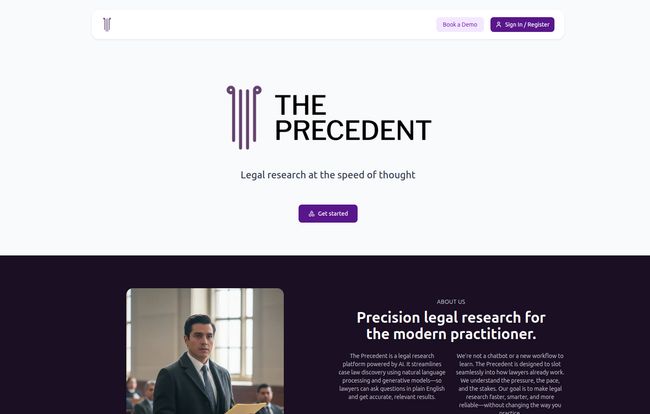
Visit The Precedent AI
The Core Features That Caught My Eye
A tool is only as good as its features, right? Here’s what stood out to me from their pitch.
Semantic Search: More Than Just Keywords
This is the secret sauce. For years, digital legal research has been a glorified keyword-matching game. You had to think like the machine. Semantic search flips that on its head. It’s an AI that tries to think like you.
Think of it this way: old search is like a clueless librarian. You ask for books on "corporate accountability after a data breach," and they just point you to any shelf with the words "corporate," "accountability," or "breach." You're left to sort through the mess. Semantic search is like having a seasoned research assistant who understands the intent behind your question. It grasps the context and relationship between the words to find cases that are conceptually similar, even if they don't use your exact phrasing. That's a huge leap forward.
Case Summaries and Memo Drafting on Tap
Finding the right case is only half the battle. Then comes the slog of reading through pages and pages to extract the key points. The Precedent claims to automate this, providing comprehensive case summaries. This moves you from raw data to actionable intelligence, fast.
But the real potential productivity booster is the legal research memo drafting. Imagine getting a head start on your paperwork before you’ve even finished your second cup of chai. If this works as advertised, it could genuinely free up hours of a lawyer's time—time better spent on strategy, client relations, or, you know, having a life.
The Big Promises: Fact or Marketing Fluff?
Okay, let's talk numbers. The site throws out some impressive stats: coverage of over 4 million cases, a 50% reduction in research time, and an eye-watering 80% average cost savings.
As an SEO guy who lives and breathes metrics, I've learned to take big, round numbers with a grain of salt. An "80% cost saving" is a massive claim. I'd love to see the math on that. Is it purely based on the reduction of billable hours spent on research? Probably. And while these are obviously their own internal marketing figures, they paint a powerful picture. Even if the reality is a 30% or 40% reduction in time, that's a monumental win for any law firm. It represents a fundamental shift in efficiency.
So, What's the Catch? A Look at the Potential Downsides
No tool is perfect. And it's my job to be a bit of a skeptic.
First, the India-Only Focus is a double-edged sword. For anyone practicing Indian law, it's a massive advantage. The specialization means the AI is trained on a relevant, specific data set, which should lead to better, more accurate results. But it also means it's a non-starter for firms focused on US, UK, or international law, unless they have a dedicated India practice.
Second, the pricing. It’s a bit of a black box. The website pushes you to "Book a Demo," and when I went looking for a pricing page, I hit a 404 error. A bit of a slip up there. This "book a demo" model is standard for B2B SaaS, but it always feels a little...coy. It's almost certainly a subscription-based service, so don’t expect a one-time fee. You’ll have to engage their sales team to find out what it'll actually cost your firm, which can be a hurdle for smaller outfits just wanting to know the price tag.
Who Is This Tool Really For?
I see a few key groups who could really benefit from something like The Precedent.
- Solo Practitioners & Small Firms: This is a force multiplier. It gives smaller players access to research capabilities that were once the exclusive domain of giant firms with armies of paralegals and junior associates.
- Large Law Firms: For them, it's all about efficiency and standardization. A tool like this can streamline workflows, reduce turnaround times, and ensure a consistent quality of research across the board. It can also be a powerful training tool for new associates.
- Law Students: What a way to learn! Instead of just learning theory, students can see how it's applied in real cases, quickly and efficiently. It could be an incredible academic tool for understanding case law on a deeper level.
The Verdict from an SEO and Tech Perspective
Pulling back the curtain, I have to say I'm impressed by the strategy here. They've identified a very specific pain point in a very specific, complex market. Instead of boiling the ocean and trying to compete with the global Goliaths of legal tech, they've chosen to be the undisputed David in the Indian legal arena. That's just smart business.
The emphasis on slotting into existing workflows rather than forcing a new one is also incredibly astute. People resist change, especially busy professionals. By making adoption easy, they've removed one of the biggest barriers to entry. The tech itself, focusing on NLP and semantic search, is absolutely where the future is headed. It shows they're not just building for today; they're building for where the puck is going.
Frequently Asked Questions about The Precedent
Is The Precedent free to use?
All signs point to no. It appears to be a premium, subscription-based service. To get specifics on pricing and plans, you'll need to use their "Book a Demo" feature on the website.
Can I use The Precedent for laws outside of India?
Currently, no. The tool's primary strength and its entire focus is on the Indian legal system. Its dataset is tailored specifically for case law within India.
How is this different from a legal chatbot?
It's fundamentally different. A chatbot is designed for conversational Q&A and often gives direct (and sometimes risky) answers. The Precedent is a sophisticated research tool. It doesn't give you legal advice; it empowers you to find, understand, and synthesize relevant legal documents much faster.
Is the AI reliable? Can I trust its summaries?
The promise is high accuracy, but with any AI tool, it should be seen as an assistant, not a replacement for professional judgment. The goal is to do the heavy lifting and initial legwork. A prudent lawyer would always verify the AI's output against the source material for critical applications.
How does "semantic search" actually work?
In simple terms, it analyzes the meaning and context of your search query, not just the individual words. It understands that "a company's duty after losing customer data" is related to "corporate liability in a data breach," even if the words are different. This leads to far more relevant and comprehensive search results.
Final Thoughts
The legal world is often seen as one of the last bastions of tradition, slow to adopt new technology. But that's changing, and fast. Tools like The Precedent are no longer just interesting novelties; they're becoming strategic necessities.
It’s not about replacing lawyers. It's about augmenting them. It’s about taking the 'work' out of paperwork and freeing up brilliant legal minds to do what they do best: strategize, argue, and advocate. For legal professionals in India, The Precedent looks like a powerful new ally in the quest to work smarter, not just harder. And in this line of work, that might be the most valuable precedent of all.
